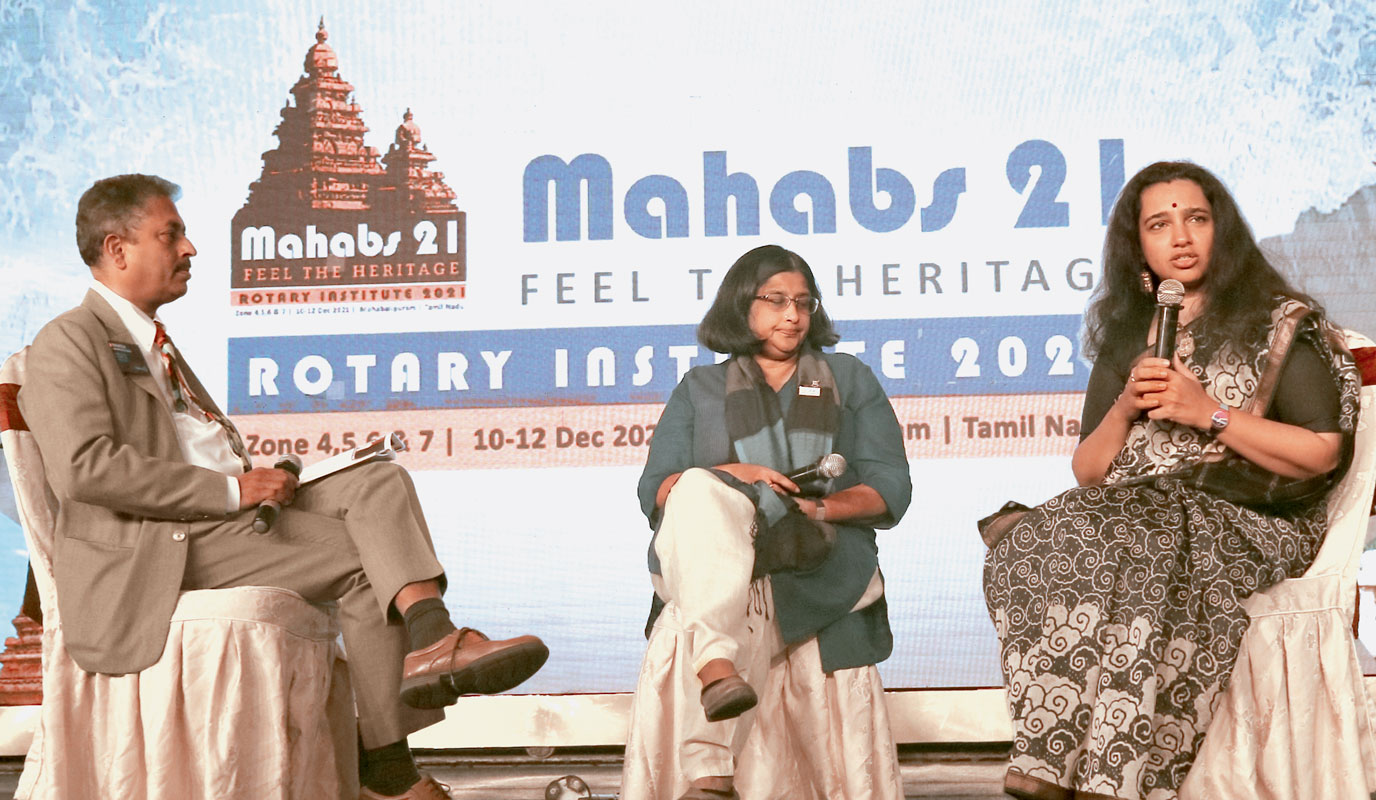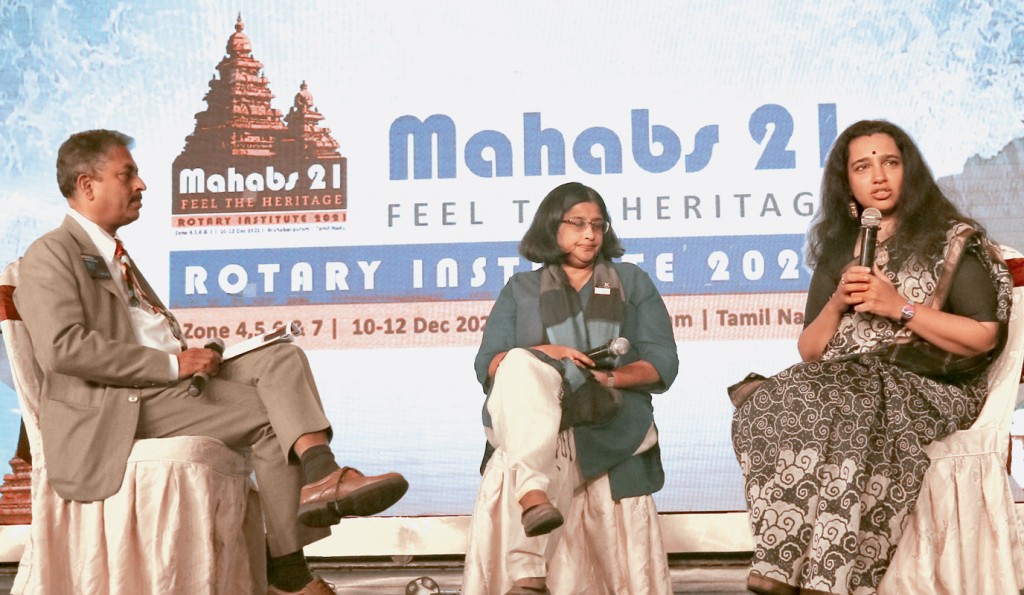
We will do 3 crore mangrove plantations in India,” said RI President Shekhar Mehta at the Mahabs 21 zone institute in response to a suggestion from Meenakshi Venkataraman, chair, ESRAG (Environmental Sustainability Rotary Action Group) – South Asia chapter. “An alarming 50 per cent of the world’s mangrove forests have disappeared in the last 50 years,” she said, adding that mangroves are particularly efficient at absorbing carbon dioxide from the atmosphere. They are home to vital species in the blue carbon ecosystem and help prevent coastal erosion.
Meenakshi and Mridula Ramesh, founder, Sundaram Climate Institute, presented a plenary session on environment sustainability which was anchored by RI Director Mahesh Kotbagi. He remembered PRID Sushil Gupta for his passion for water projects, elevating the water table, constructing check dams, desilting wells and canals in arid Rajasthan.
Meenakshi recalled President Mehta’s speech at the COP26 climate change conference held in Glasgow last November. “He had rightly announced that mangrove restoration will be one of the key threads of Rotary’s environmental focus. The impact of climate change is rising sea levels, tornadoes and cyclones, and the best and first defenders of these in tropical coastal communities are the mangroves, he had said.”
She pointed out that in India mangroves form only three per cent of the forests. They are more significant in the Sundarbans (West Bengal), Bhitarkanika (Odisha) and the Gulf of Kutch (Gujarat). “We must restore our mangroves on a war-footing, and plant at least one crore mangrove species in each region. We have been doing Miyawaki forests. But it takes 40 years to see any carbon sequestration from these forests. Restoring mangroves will yield result in three years.”
It takes six years of careful nurturing the mangrove plants after which they can be replanted in an estuary. “So we must be prepared for that many years of commitment. But the first-year survival rate is less than 40 per cent,” she warned.
Replying to a question on building continuity of projects in clubs, she said, “Just as you have a three-year term for TRF chair in the districts, every district must have an Environment chair for a three-year term.”
With Delhi having the highest number of Electric Vehicles running on rechargeable batteries, Meenakshi recommended that Rotary clubs set up solar charging stations at strategic spots, which “will also add to your public image.” Urging Rotarians to practise what they preach, she said, “If you are happy to provide solar energy in your neighbouring village, go for it. But put one at your home first.”
She drew attention to the wild growth of lantana bushes in the forests. For people living in cities these are great-looking plants to grow in our yards, but these are the scourge of our forests. This invasion has affected the growth of native forage plants for wild herbivores, she said.
Waste management
We cannot reverse the devastating impact of climate change but at least adapt ourselves to halt it to some degree. This can be achieved by understanding the critical link between climate change and waste, said Mridula, adding that every individual must do their bit instead of waiting for the government to provide a solution to their community’s woes.
She related how her home survived one of the worst water crises. “In 2017 Madurai saw the worst drought in 140 years and we were the only house not to buy water. But earlier when our bore well went dry in 2013 we had to spend an insane amount of money purchasing water from private tankers. I then realised it was time for individual action. That’s when you start discovering, acting and become independent and resilient.”
An advocate of zero-waste concept, she related how she reduced waste generation at her home and factory. “We just need to pretend that we do not have a garbage service and then see how our choices and lifestyle change!”
Much of the kitchen and garden waste that is sent to landfills can be turned into an energy source or fertiliser. “Advocate waste segregation in your community. Managing our wet waste gives us one cylinder of biogas a month,” she added.
Her mantra for doing environmental projects: Act on data and design easy concepts for the project to be sustainable. “Convert your project to bring value to the community and people will nurture it,” she said.






